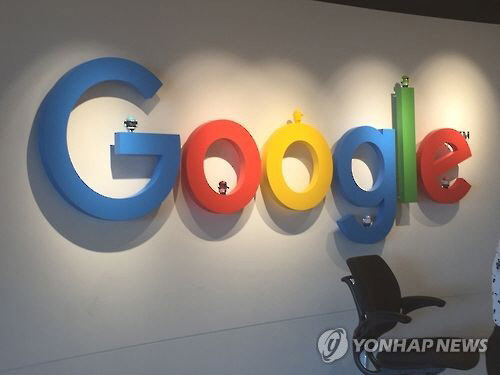No reaction for domestic network fee while suggesting paying international network usage fee together…Shameless Google
Kang Eun Seong | esther@ | 2017-10-25 11:00:41

[Photo] YONHAPNEWS
Issue analysis, Googe torturing ICT Korea, Should it be left in this way (the third part)
[Digital Times, Kang Eun-seong] Google, which has caused a lot of burden on the Korean communication network but has not been able to use the network, has caused controversy about reverse discrimination. Recently, it was revealed that Google, YouTube, and 3 network operators (ISPs, telecom companies) that make tremendous traffic and invest thousands of won each year say that there is no good news.
According to the industry on October 24, Google said to some ISPs that "We have built an international circuit for the time being, but the additional capacity is inevitable because of the explosive increase in traffic volume due to the high usage of Korea. It was reportedly demanding.”
Currently, Google does not build its own international circuit, but in domestic service, it is a cache server installed in three telecommunication companies, and it is digging a lot of high-volume traffic such as video. As a result, there is no settlement with domestic telecom companies. Google is categorized as an `Internet portal` service that provides search and content services in Korea, but in the US, it has the status of an ISP that builds a `communication network` like a carrier. International lines will also be built.
Google, on the other hand, has asked local mobile carriers to share costs for line expansion because of increased traffic. To do so, Google will also need to ‘cross-check’ for domestic traffic growth. This is because the networks of both companies are in an `interconnected` state.
Meawhile, there was a precedent in France where similar cases were brought up to legal disputes. Google has entered into an Internet network interconnection agreement with French telecom operator France Telecom (subsidiary OpenTitles) in 2005 through its affiliate Cogent, and charges for each other within the range of 1 to 2.5 traffic exchange ratio I agreed not to. Since then, as the traffic of Google has increased rapidly, France Telecom has demanded the payment of `extra network fee` according to the `interconnection agreement` for traffic outside the scope of the agreement. Google countered this, and in May 2011 France Telecom filed a complaint with the French Fair Trade Commission that it was abusing its dominance over the network. The FTC disagreed with Google in consultation with the communications regulator ARCEP. At the time, ARCEP said, "It is not a law violation that France Telecom demanded to pay in the face of the asymmetrically reversed traffic exchange ratio between France Telecom and Google." The ARCEP also said, "When the traffic exchange rate gap in the Internet industry is large (usually 1 to 2.5), it is in line with the Internet industry`s practice of paying a lot of traffic-inducing entrepreneurs." As a result, the French FTC dismissed Google`s complaint in September 2012 and determined that the request for payment was not in violation of network neutrality. Google filed a series of appeals to the French Supreme Court and the Supreme Court, but all of the higher courts dismissed Google `s complaint and handed over France Telecom` s hand. As of January 2013, Google is paying the equivalent of excess traffic to France Telecom.
Currently, in the case of Korea, Google is using domestic cache server as a non-settlement. There is no `extra settlement` for explosive traffic volumes. The ratio of 1 to 2.5 traffic, which is considered to be a practice in France and the global Internet market has been out for a long time, but the extra cost has never been settled.
"In fact, when the traffic of Google grew explosively in 2011, three mobile carriers were investing more than KRW 10 trillion in each company to build an LTE nationwide network. It was a time to invest tens of trillion won in order to provide faster and more reliable service even at 0.01bps, so we had to install a cache server as a `special measure` to digest Google traffic. Digested and competed, "he said.
Meanwhile, the bigger problem is that the current situation that Google is generating is just the beginning. This is because the burden on the network is growing rapidly as foreign online TV service (OTT) such as Netflix and Watche, as well as other overseas content providers (CP) such as Facebook, etc., are rapidly entering the domestic market. Worldwide Internet traffic, which was 55 exabytes in 2016 (1 billion exabyte = 1 billion gigabytes), is expected to surge 247% to 191 exabytes in 2021, according to actual Cisco reports. The vast majority of increasing traffic is occupied by video. The Cisco report predicts that video-related traffic will grow at a CAGR of 30% a year, to reach 154.71 exabytes, or 81% of 191 exabytes in 2021.
Also, there is a high demand for regulators to act as `judges` for fair competition in the Internet industry and payment of reasonable traffic usage fees. "Network neutrality is a principle that ISP prohibits `discrimination` against users and CP for its own profit," said a communication policy specialist. "It is not a ban on billing," he said. "The worst situation has already occurred when the government has been disturbed by the `inter-operator issues`. Domestic authorities are now in the process of establishing proper rules of the market. "He said.
By Kang Eun Seong esther@
